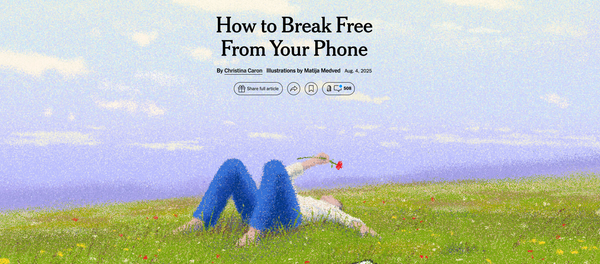Course Read-Along: Terminology & Communities
How does what we call our work matter?

In the second week of my Adapting Christian Formation course, we talk about terminology, a range of religious educational traditions, and the organizations that carry these traditions forward.
Why does this matter? Aren't we always just trying to facilitate learning? Don't definitions trap us as much as empower us? Yes and no.
One reason learning about these traditions matters is because each is connected to one or more communities of practice. In a sense, my most important goal for this week's material is to start getting seminarians connected to the organizations that can support them as formation leaders after seminary. This is both a "encouraging lifelong learning" goal as well as a "not reinventing the wheel" goal, if you take my meaning.
A second reason these traditions matter is that they can be distinct from one another to a non-trivial extent. Different students will choose, or be expected, to work primarily from one or two of these perspectives. Or, if not, then choosing a primary perspective is still an important matter of their ministerial identity development, especially at a time of intense religious change (that's the topic of a later week!).
So what are the various ways of thinking about the work? Here's what I've come up with:
Christian Formation Tradition
Exemplary organization: Forma
This is probably the most mainstream current perspective across the Mainline Protestant denominations. Forma reflected its key insight when it changed its name from the National Association of Episcopal Christian Education Directors.
The Christian formation tradition acknowledges that the Church is "in the business" of making disciples, and that doing so is a matter not just of "book learning" but of educative experiences more broadly.
Catechesis Tradition
Exemplary organization: National Community of Catechetical Leaders
The Catechesis tradition has its center of gravity in Roman Catholicism. Its emphasis tends to be more informational ("educational" in the popular, school-centered sense), though ideally without losing sight of the importance of making personal connections to the material.
The Catechesis tradition takes as primary the teachings of the Church, usually emphasizing sanctioned theological perspectives and distinctively Christian practices (e.g., lectio divina, centering prayer, celebration of the sacraments, etc.).
Religious Education Tradition
Exemplary organization: Religious Education Association
The RE tradition today is explicitly multifaith. It has a range of positions on whether it's trying to form anything, faith-wise, other than understanding and appreciation.
At one end we're basically talking about "religious studies" but for all ages. Learning about religion. At the other end are various ways of articulating that we can each be strengthened in our own religious and spiritual groundedness by engaging with ideas from faiths other than our own.
Either way, the religious education tradition explicitly acknowledges that, in today's world, learning about any religion always takes place in the context of an acknowledgement of other religions. My friend and colleague Mary Hess calls this the "community of communities" reality.
Spiritual Development Tradition
Exemplary organization: Sacred Design Lab, Spirituality Mind Body Institute
There is a wide range of opinion among religious people about to what extent it makes sense to foster spiritual development outside the context of a practicing religious tradition.
However religious people feel about it, plenty of non-religious or religiously ambivalent people are attending to this dimension of their humanity in thoughtful and often quite sophisticated ways.
The spiritual development tradition uses tools from religion, science, and the arts to engage practitioners in a deepening journey of meaning-making and wellbeing. Fellow religious people: Please don't be jerks about them.
**
That's my map of the landscape. Where do you find yourself within it? How would you describe it differently?
If you wanna go deeper on this, I'll share my own take later in the week.



